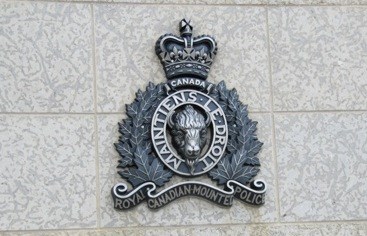If you get a threatening phone call claiming to be from the Canada Revenue Agency, beware.
Saskatchewan is seeing more reports of several scam phone calls claiming to be from the CRA and threatening to arrest people if they fail to respond right away.
Insp. Donovan Fisher, officer in charge of Integrated Organized Crime North for the RCMP, spoke of the fraud at a news conference in Saskatoon Thursday.
Insp. Fisher said the latest scam is calls on purporting to be on behalf of Canada Revenue Agency which threaten arrest. If money is not paid right away, listeners are told, police would attend the residence and arrest the individual.
He said there were 88 complaints to RCMP F Division in August alone about the CRA scam. The calls extend to at least 45 detachments in 45 communities across Saskatchewan.
Eighty-four of the 88 complaints requested amounts of money of less than $5,000, while four requested more than $5,000.
Of the complaints, “initially we received two victims that came forward and were ultimately defrauded of just over $10,000.”
These numbers do not include many more complaints going to Saskatoon police or Regina police. As well, additional victims continue to come forward.
There are several versions of this scam, including voice messaging providing a callback number. One such scam call was played at the news conference to give people an idea of what the RCMP are dealing with:
“I need you to leave your work aside and dial this number from CRA Tax Crime Division,” a voice said.
“This is Officer Brandon Walters and I am working with CRA Tax Crime Division. Now if you fail to return the call or in case I do not hear from your attorney either, the only thing I can do is wish you good luck as the situation unfolds on you.”
Usually these are automated calls which provide a phone number to call that connects to a live human being who demands money be e-transferred to them.
As for where the calls are coming from, Insp. Fisher speculates these likely originate outside Canada. Also, because of technology, fraudsters can change the numbers to make them look like they are local calls.
The goal seems to be to prey on people who are good upstanding citizens who are not used to dealing with police and not used to dealing with the Canada Revenue Agency, said Fisher. The calls appear to be random, he said, but some groups of people are more likely to fall victim to it, including the elderly, upstanding citizens who’ve never dealt with this before, and also new Canadians who are unfamiliar with Canada’s tax laws and who come from countries where the police and the government is more intimidating.
“The potential exists to have many more victims,” Fisher said. “Numerous complainants have called the RCMP detachment very concerned and worried trying to determine whether these phone calls are legitimate. We are asking the public to remain vigilant so that they do not become victims of this fraud.”
He said the public needs to be suspicious of “any unsolicited or unexpected calls” or emails from any of their service providers, including CRA, the bank, utilities or other online accounts. “You have the right to ask questions. Inquire from the caller about specific information. Have them provide this information to you,” said Fisher.
With a CRA call, for example, the caller should be able to provide specific information about when you filed your taxes, reported income, mailing address, and so on.
Fisher also said never provide a credit card, health number or other information. If anyone is demanding a fine or an outstanding amount, request a fine or an invoice be sent to you. Ask them to confirm the address it would be mailed to but do not provide that information. At this point the caller could become belligerent and that “should be a big red flag,” Fisher said. “Professionals working for legitimate organizations will not behave in this manner.”
It is also important never to trust the links provided in emails because these are often fraudulent and direct you to other fraudulent websites.
The RCMP is urging people to report the calls and to report if they have been victimized. “Without this information from the public it is very difficult for us to know how the fraudsters are attempting to steal peoples’ hard-earned money.”




